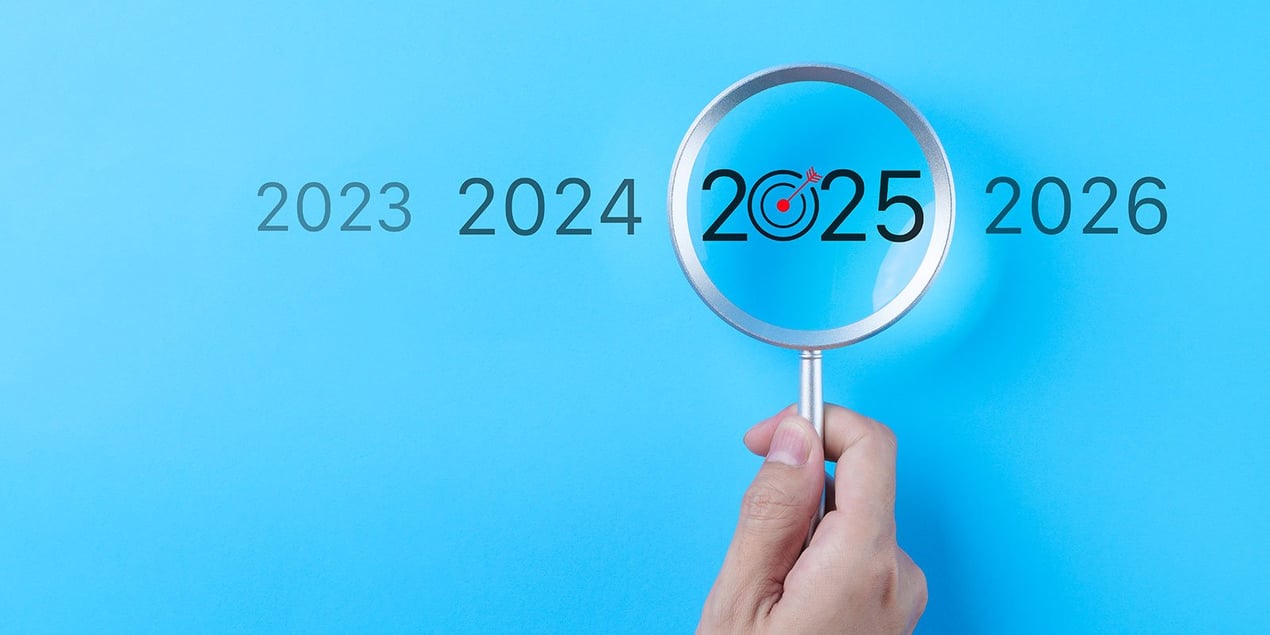Back in 2021, I wrote a blog about the emerging B2B marketing trends we were seeing at the time — a period defined by rapid digital transformation and pandemic-driven shifts to get everything online fast.
In that piece (read it here), we focused on automation, content marketing, virtual events, and the growing importance of CRM systems. It was all about adapting quickly and making digital work harder for leaner, more agile teams.
Fast forward to today, and the landscape has evolved again — but this time, it’s not about going more digital. It’s about balance.
While digital is still foundational, what I’m seeing in 2025 is a return to fundamentals: building strong brands, in-person engagement, and finding ways to unify marketing and sales.
With that in mind, let’s unpack what’s really shaping B2B marketing right now — and where I believe we’re headed in 2025.
The Hybrid Marketing Model Is Here to Stay
One of the clearest shifts I’ve noticed in the last year is how B2B businesses are structuring their marketing teams. Gone are the days of relying solely on in-house or fully outsourced setups. What I’m seeing is a hybrid model becoming the standard — blending in-house expertise with agency support.
Why? Because internal teams know their business, but they often lack the time or niche skills required to run high-performance campaigns.
On the flip side, agencies (like MO Agency) bring specialised skills, campaign agility, and scalable resources. This collaboration delivers far better ROI than either approach on its own. It’s something we’re seeing work exceptionally well at our clients.
Brand Awareness Has Taken the Lead
Lead generation has always been a top priority for B2B marketers. But lately, I’m seeing brand awareness climb up the ladder. Businesses are realising that a strong brand isn’t just about aesthetics — it’s a strategic asset.
Companies with recognisable, trusted brands get more inbound leads, command higher pricing, and close faster. It makes every other marketing and sales activity more efficient. We’ve helped several clients position their brand more effectively in the past year to improve their lead quality.
If your brand isn’t memorable, clearly differentiated, or in the right channels - it might be time to invest here. Our piece on strategic B2B web design outlines how to get started on your website.
Budget Caution Is Shaping Strategy
I’m speaking to many B2B leaders who are being more cautious with their marketing budgets — not cutting, but watching ROI more closely. This doesn’t mean marketing is on the back burner. If anything, it’s forcing smarter decisions.
Businesses are doubling down on channels that work and reevaluating where their spend actually drives value. Whether it’s paid search, content, or events, the key is attribution. We’re seeing a lot of interest in HubSpot’s advanced ROI reporting tools to measure and track paid ad performance as it affects real sales numbers.
A Return to Traditional Marketing Channels
This one might surprise you: traditional marketing tactics have a definite resurgence. In-person events, sponsorships, and company leaders' personal brands are getting more attention than they have in years.
It’s not about ditching digital — far from it — but rather about rebalancing. With digital spaces getting noisier, many businesses are looking for more tactile, personal ways to engage. Event marketing, especially, is back in a big way. Face-to-face still builds trust faster than anything else.
We covered this return to in-person strategy in our Event Marketing with HubSpot
You can see our Marketing Café Johannesburg sponsorship and appearance here Marketing Café 2025.
AI Isn’t Optional Anymore
The rise of AI tools is one of the most exciting shifts in B2B marketing. From content generation and design to reporting and automation — AI is everywhere. But what I’m seeing on the ground is that adoption is still uneven.
Some teams are integrating AI into their workflows and seeing huge productivity gains. Most teams, however, are hesitant or simply unsure where to start with AI. My advice: pick one or two areas where AI can remove grunt work or enhance creativity. Then test and scale from there.
We’ve been experimenting heavily at MO Agency and documented some of that in our blog on AI for content marketing.
The Push for Better Data and Attribution
One consistent challenge I hear from clients is attribution — knowing what’s working and what’s not. As marketing channel options grow and buying journeys become more complex, tracking impact becomes harder.
Analytics and data you can trust are more important than ever. That’s why improving analytics, dashboards, and customer journey mapping is a top priority for B2B marketers in 2025. HubSpot’s reporting tools are making this easier, but it still requires strategy and alignment. That's how we get it done easily, but there are a number of tools out there.
If it was my Business, here's what I would do in 2025
The conversations I'm having with B2B leaders and marketers are already shaping 2025 priorities — and my top objectives are as follows:
1. Brand Awareness is taking center stage. Even in traditionally conservative B2B sectors, we're seeing more investment in branding paying off. Personal brands, new and relevant channels with channel-optimised messaging, events and sponsorships
2. Lead Generation is still critical. Your brand might get you in the door, but generating the right leads — qualified, sales-ready, and aligned with your ICP — is what fuels revenue growth.
3. Client Retention follows naturally. If you're attracting the right clients through brand and lead gen, retaining them becomes a lot easier. This means marketing's role in post-sale engagement, education, and loyalty is becoming more important.
4. Sales Support rounds it out. Marketing isn't just about leads — it's about equipping the sales team with the content, data, and tools they need to close deals. This is where marketing and sales need to get tighter.
And that’s precisely why we're such big advocates of HubSpot. A system like HubSpot makes all the difference — aligning sales and marketing around shared visibility and goals.
Final Thoughts
2025 isn’t about chasing shiny new trends. It’s about combining the best digital, traditional, and human strategies to build trust, scale smartly, and stay agile. Whether you’re reviewing your brand, reassessing budget allocation, or dipping your toes into AI — the marketers who move intentionally will win this year.
Need help putting your 2025 plan into motion? Let’s talk.
— Luke






